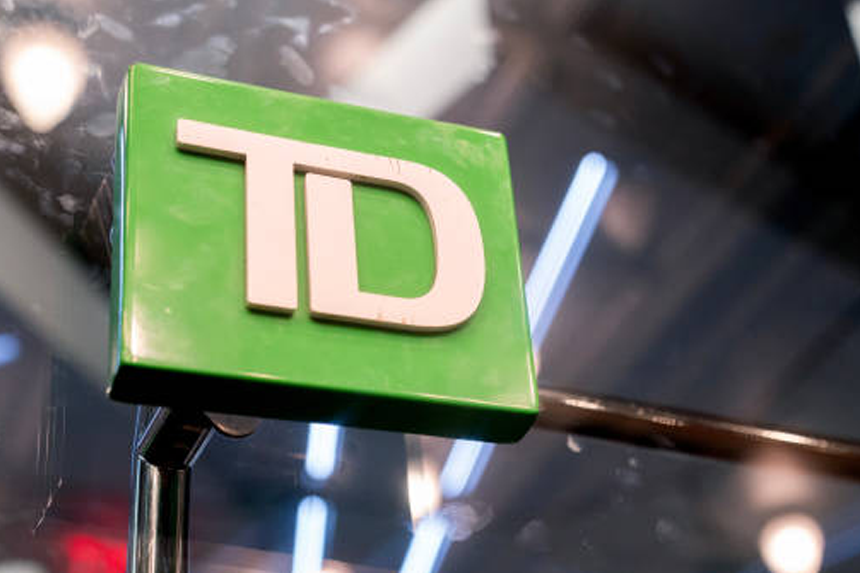What Led to Criminal Charges Against TD Bank?
One of the biggest banks in Canada, TD Bank, has agreed to pay more than $3 billion—about £2.3 billion—after confessing guilt to criminal charges in the United States. The allegations result from the bank’s inability to stop drug cartels and other criminal groups from passing hundreds of millions of dollars in illegal money across its networks over almost ten years.
According to U.S. prosecutors, TD Bank let these illicit activities continue despite several staff warning flags—including a customer making daily cash deposits of $1 million. The indictments state that the bank did not respond sufficiently even when these dubious trends were reported.
How Significant Is the Fine Imposed Under Anti-Money Laundering Laws?
TD Bank’s fines under the Bank Security Act are the biggest ever. This is the first time a bank has admitted guilt of conspiracy to commit money laundering. Apart from the significant financial penalties, TD Bank will have growth constraints in the United States while trying to restructure its compliance systems.
Commenting on the matter, Attorney General Merrick Garland said, “by making its services convenient for criminals, TD Bank became one.”
Along with further payments to other authorities like the Federal Reserve and the Office of the Comptroller of the Currency, the fines total $1.8 billion paid to the Justice Department and $1.3 billion to the Treasury’s Financial Crimes Enforcement Network.
What Did the CEO Say About Failures Under His Leadership?
Under his direction, TD Bank’s Chief Executive, Bharat Masrani, owned all responsibility for the bank’s failings. Publicly apologizing, he said: “This is a challenging chapter in the history of our business. As CEO, these mistakes happened under my observation; I apologize to all of our stakeholders.”
Leading the bank for almost ten years, Masrani will be retiring in April 2025. The bank has already begun implementing reforms to address its compliance shortcomings, adding more than 700 experts to bolster its anti-money laundering initiatives.
Masrani said the redesign will be a multi-year effort, “We are committed to making the investments, changes, and enhancements required to deliver on our commitments.”
What Are the Growth Restrictions in the U.S.?
In an odd action usually reserved for significant infractions, U.S. authorities placed growth limitations on TD Bank’s retail business nationwide. Such limitations are unusual; the last notable occurrence occurred when Wells Fargo suffered consequences over their bogus account issue.
U.S. officials attacked the bank for ignoring its compliance obligations at a press conference while its operations and size kept expanding. One insider said that by 2018, TD Bank had yet to track almost 90% of the transactions on its network, neglecting impacting more than $18 trillion in transaction volume.
“The gaps in compliance were so well-known internally that staff joked the bank’s motto— ‘America’s most convenient bank’—was marketed towards criminals,” prosecutors said.
What Criminal Schemes and Internal Corruption Were Uncovered?
Several plans involving staff members and TD Bank clients came to light. In one case, a client made significant cash deposits and paid bribes—including gift cards—to bank staff after laundering more than $470 million in narcotics money through the institution.
This specific program helped money to move from American fentanyl consumers to drug networks functioning in Mexico and China. In another case, five TD Bank staff members were found to have produced hundreds of ATM cards, facilitating the $39 million transit of illegal money to Colombia.
How Is TD Bank Working to Rebuild Trust Amid Scrutiny?
Serving over 27.5 million clients globally, TD Bank is one of the biggest banks in North America by assets and is striving to regain trust by improving its compliance procedures. The agreed settlement would include a period of outside observation to guarantee the bank fulfills its promises for transformation.
Although the financial impact is significant, TD Bank is sure it will be able to survive the crisis. “The bank has the financial strength to withstand this,” said Masrani, restating TD’s dedication to solving its shortcomings.
What Was the Market Reaction and Future Outlook?
TD Bank’s shares dropped almost 5% after the settlement was announced. Although this instantaneous decline captures the scope of the crisis, experts are observing how the bank’s continuous reforms and growth constraints would affect its long-term situation, especially in the competitive U.S. market.
As TD Bank sets off what its CEO has termed a “multi-year process” to modernize its anti-money laundering system, rigorous examination of its apologies and reform pledges will be vital. With additional individual prosecutions expected as investigations continue, the bank is under more scrutiny from authorities and consumers.




